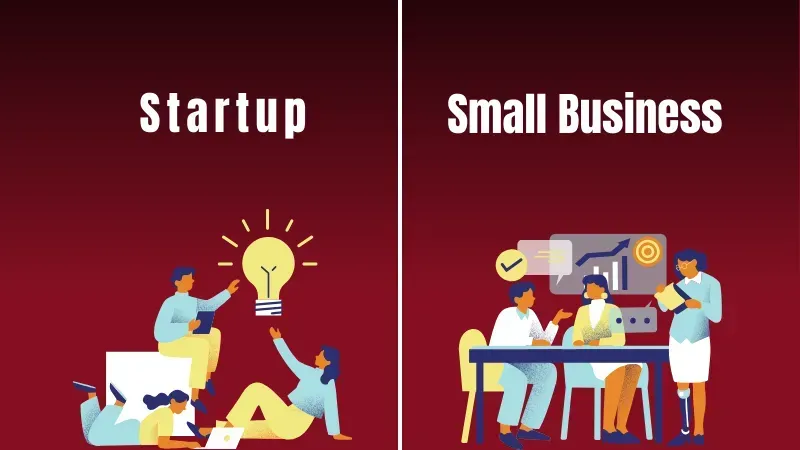Entrepreneur
Why All Successful Entrepreneurs Have MBAs: Mentors, Believers, Advocates

There’s no such thing as a “self-made” merchantry owner. The mere notion of the self-made man — someone who came from nothing, had a big idea, venal it entirely on his own, and now has it all — is mostly an American myth.
Sure, successful entrepreneurs and merchantry owners are smart, opportunistic, perceptive, and whiz at assimilating information. Yet in recommending a number of them for over 40 years, and having been an entrepreneur myself for just as long, I can confidently say that none succeeded on their own. All, instead, had “MBAs” — mentors, believers, and advocates.
So if you’re well-nigh to strike out on your own, know that you’ll need MBAs, too. Here’s why.
I owe at least 80 percent of my success to two unconfined mentors — my father and my older brother. My father was a lawyer and a judge. Surpassing his untimely passing, at 60, when I was just a teenager, I had the good fortune to watch him at work.
On the bench, my father never failed to manipulate common-sense justice. Whether he was facing a nude sunbather or a shoplifting youngster, he meted out justice in equal proportion, unchangingly balancing the law with everyday reason. Similarly, in his legal practice, he was indefatigable in serving people, whether they were “paying clients” (as he tabbed them) or not. I heard him say myriad times that if a vendee asked him to push a nickel wideness town with his nose, then that’s what he’d do.
I learned many invaluable lessons from my father’s mentoring and lived example — most notably, the value of justice, fairness, worldwide sense, service, and hard, tireless work. His morals and ideals, in fact, became part of my own DNA.
My brother, Mike, 13 years older and moreover an attorney, became my mentor without our father’s death. His mentoring style, while rooted in love, was heavy-handed, with a drill sergeant-like precision (and usually the salty language to match). When I was yonder at college, our phone calls often ended like this: “You want to get into law school? You largest get your [expletive] grades up.”
Mike was the managing partner of a large Cincinnati law firm. His vulpine handling of his hard-nosed corporate clients, together with his whiz maneuvering of his partners’ mercurial personalities, made his translating and mentorship incredibly valuable.
I spoke to Mike scrutinizingly daily, from the time I started my written practice in 1984 until his death, at 58, in 2001. And to this day, not a week goes by that I don’t find myself repeating his mantra: “Nothing in merchantry defies logic.”
So if you don’t once have a mentor in mind, start today to seek one out. Find a person, probably older, who is experienced and successful, and who you trust and respect. Also, squint for a truth-teller. You want someone unafraid to requite it to you straight.
“Learning is finding out that you once know. Doing is demonstrating that you know it. Teaching is reminding others that they know just as well as you. You are all learners, doers, and teachers.” — Richard Bach
Believers
Being a successful entrepreneur requires taking your prospects and customers on a journey that, with time, steady relationship building, and earned trust, culminates in them rhadamanthine believers. But you can’t do that without first believing in yourself — your talent and abilities, your product or service, your value, and more.
This can be nonflexible at the start, however, considering you lack a tangible track record to point people to. This ways that you’ve got to tell a story that suspends their doubt or unease. And to spin this yarn, here again, you have to unquestionably buy it yourself. Otherwise, why should anyone else?
It may seem counterintuitive, but when I first started my written practice, I found it much easier than later on — when I’d built an remarkably increasingly established firm — to tell my story. Albeit really unenduring and clunky, it worked. In fact, I went on to double my earnings in just my second year.
So plane if you’re not a natural-born salesperson, and few are, you must be worldly-wise to tell your story and “sell” yourself in order to create believers. The good news is it’s easier than you might think, expressly if you don’t overanalyze things, pension it real, and get out of your own way.
Advocates
Believers may be great, but advocates are plane better. What’s more, when you nurture and serve your believers well, they scrutinizingly unchangingly wilt advocates. Given that their faith in you was rewarded, they enjoy converting others to believe, too. This kind of evangelism often turbocharges a new business, resulting in so-called hockey-stick growth, where revenue shoots up sharply in a lines shaped like a hockey stick.
Now, if all this talk well-nigh mentors, believers, and advocates sounds like too much work, that’s okay. Perhaps striking out on your own isn’t for you. As a matter of fact, I’ve come to learn that while some people may be unconfined agents, they aren’t cut out to be principals. Likewise, the opposite is moreover true: Unconfined principles often make for poor agents. Consider a longtime vendee of mine, who I’ll undeniability Tim.
A free-range entrepreneur
For background, Tim had run his own, successful razzmatazz organ for scrutinizingly 20 years. But due to a combination of challenges in the merchantry and what he thought was a terrific outside opportunity, he was lured into taking an executive-level position at a big-time, publicly held company.
Tim began work at his new visitor at a corporate retreat at The Greenbrier, the famed luxury resort located in West Virginia. He plane traveled to the event with the company’s CEO, just the two of them, in the CEO’s top-of-the-line Mercedes.
According to Tim, the five-hour ride to The Greenbrier went swimmingly. The CEO repeatedly extolled Tim’s wits and entrepreneurial chops, remarking over and over then that he was the perfect person to lead the company’s marketing and razzmatazz teams through some hair-trigger new initiatives. Suffice it to say, Tim was like a kid on a sugar rush. And — spoiler zestful — that’s exactly what it turned out to be. His upper was startlingly short-lived, with a “crash” in mere hours.
After a unenduring afternoon session, the executive team gathered for dinner, followed by cocktails and cigars on a private patio. It was then that Tim saw a totally variegated side to the CEO, who was behaving increasingly like a long-reigning monarch (Louis XIV came to mind) than a collegial corporate leader. Worse, the other execs were going along, vicarial like tools of the boss, without brains or backbone. The longer the evening went on, the increasingly horrified Tim became. It was a gut dial if there overly was one.
Later, Tim told me that he powerfully quit at that moment. He did, though, manage to show up and dutifully lead his team, which under the CEO would wilt a long and excruciating 18 months.
Tim’s lesson, while painful, was that it was nearly untellable for him to execute someone else’s demands and directives, let vacated operate at their whims. As he puts it, he is “a free-range entrepreneur.” Yes, he quit a seemingly platonic job, with a big title, lavish pay and perks, and the status of working for a renowned, NYSE-listed company. But the fact was he couldn’t gravity himself to perform on demand.
To be clear, it’s neither good nor bad to be an wage-earner or a principal. Yet one thing’s for sure, the membrane between the two is pretty much impermeable. Thus, surpassing you take the leap into entrepreneurship, be sure to consider your personality, temperament, and optimal working style.
All of this to say, if you’re feeling ready to be an entrepreneur or merchantry owner, remember that you’ll need MBAs. And if you don’t believe me, just ask the “self-made” people who came surpassing you.





